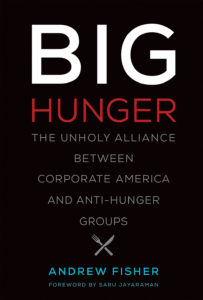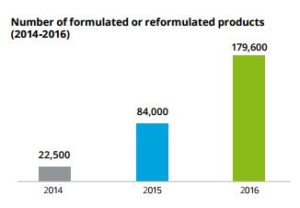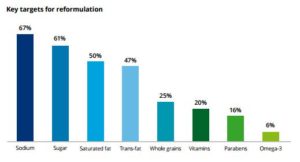Evaluation of the effect of the Berkeley soda tax continues. The latest results, published in PLoS Medicine, say that one year after implementation of the tax,
Prices of Sugar-Sweetened Beverages (SSBs) increased in many, but not all, settings
- Sugary beverage sales declined by 9.6% in Berkeley stores
- Untaxed beverages sales increased by 3.5% driven by bottled water (up 15.6%)
- Average grocery bills did not increase
- Store revenue did not fall more compared to control cities
- Post-tax self-reported SSB intake did not change significantly compared to baseline
The evaluation was funded by Bloomberg Philanthropies with support from the University of North Carolina’s Population Center and its National grant from the NIH.
The University sent out its own press release.
It also did a short video explaining what the tax is about and its effects.
Michael Jacobson of CSPI says
For Berkeley, Calif., to reduce soda sales by 10 percent—and to raise water sales by 16 percent—is a huge public-health victory. It shows that the soda tax enacted in Berkeley is working as intended. And rather than costing the city, the soda tax represents a brand-new revenue stream, which Berkeley is using for important health programs. We hope voters and policymakers elsewhere in the country will review the findings published in PLoS Medicine and press for soda taxes in their communities.
This study won’t stop Big Soda from claiming that taxes don’t work. But if soda taxes didn’t make a significant dent in soda consumption, the industry wouldn’t be fighting taxes so hard.
Helena Bottemiller Evich at Politico reports on the response to this study from the American Beverage Association (ABA), which I cannot find online. The ABA:
pointed out that the reduction in sales of sugar-sweetened beverages in Berkeley yielded a reduction of only 6.4 calories per person, per day. The study also revealed, the group added, that the tax’s first year produced an increase of about 31 calories per person, per day from untaxed beverages. The study’s authors noted the increase appeared to be largely attributable to increased intake of milk and “other” beverages, like yogurt smoothies and milkshakes.
The ABA also argued that Berkeley — a relatively small city with a high median income that wasn’t a soda-consumption hotbed to begin with — is “a challenging place to determine the true impact of a beverage tax, unlike Philadelphia, where the tax has led to significant job losses and economic hardship for working families.”
“This study does, however, confirm that sales of taxed beverages inside the city declined while sales of those same beverages outside the city increased, which is also what is happening in Philadelphia,” the ABA said.
“America’s beverage companies know we must play a role in improving public health, which is why we are taking aggressive actions to help people reduce the sugar and calories they get from beverages,” the group continued, noting the industry has pledged to cut calories from its products across the board — with a special focus on reducing calorie consumption in a few places that have extremely high rates of obesity, including communities in Los Angeles, the Mississippi Delta and rural Alabama.
The soda tax story continues. It is not over yet. Stay tuned.
Here are some reports:




